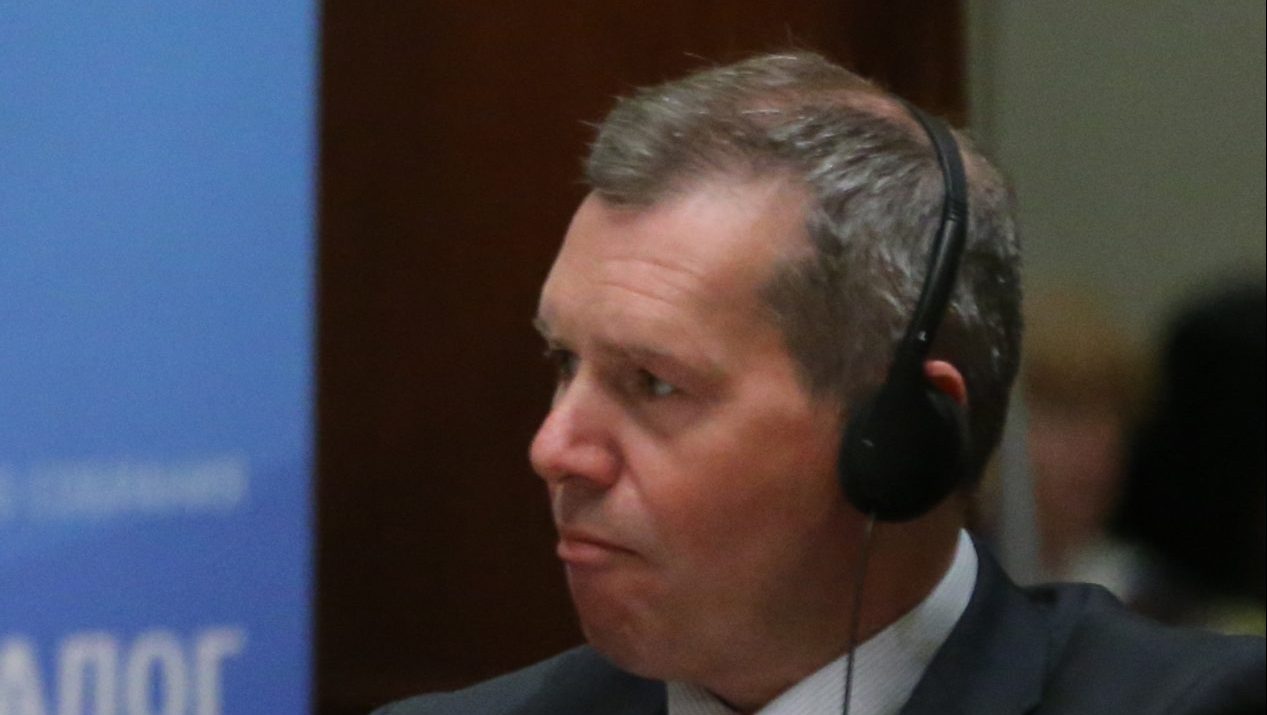A senior far-right Belgian politician has allegedly been in the pay of China in order to influence Belgium’s and the EU’s foreign policy. The former senator and member of parliament was tasked to be active on subjects ranging from China’s treatment of the Uighur minority, Hong Kong and Taiwan to more generally undermining European-American relations.
Frank Creyelman, a member of the Flemish nationalist Vlaams Belang party, which is anti-immigrant and critical of the EU, was run from 2019 until 2022 by Daniel Woo, a member of China’s Ministry of State Security, according to a joint investigation by the Financial Times, Le Monde and Der Spiegel. The newspapers had insight into text messages exchanged by the spy and the politician that were “obtained from a western security source”.
The allegations underscore concerns in Europe and elsewhere that populist politicians, particularly on the far right, are open to manipulation by countries such as China and Russia, with whose policies they often align. As a slew of far-right parties are now in power or are on the cusp of governing, such concerns have become more acute. In the Netherlands Geert Wilders’ far-right PVV last month won the general election and Vlaams Belang is consistently topping the polls for next June’s Flemish and Belgian elections.
“Apart from the question of what you think of their policies, the debate is whether they form a danger to the constitution, national and international laws and democracy in general,” Carl Devos, a political scientist at Belgium’s Ghent University, told The New European. “It’s a discussion that is taking place in several European countries. How do you deal with the extreme right, how dangerous is the extreme right?”
The issue of particularly Chinese and Russian interference in western democratic processes has cropped up increasingly over the last several years in reports by intelligence agencies and political institutions. In the UK, the Commons Intelligence and Security Committee in July warned that “China’s ruthless targeting is not just economic: it is similarly aggressive in its interference activities, which it operates to advance its own interests, values and narrative at the expense of those of the West”.
Last year the European Parliament’s commission on foreign interference in democratic processes in the European Union, including disinformation, concluded that: “Evidence shows that malicious and authoritarian foreign state and non-state actors, such as Russia, China and others, use information manipulation and other interference tactics to interfere in democratic processes in the EU.”
Creyelman, the Flemish former senator, was allegedly asked to interfere in several ways at China’s behest. In one instance, Woo urged him to push two right-wing members of the European Parliament to make statements that the US and the UK were undermining European energy security. This was on the eve of a planned visit by German chancellor Olaf Scholz to Beijing.
In one message, Woo is said to have stated that: “Our purpose is to divide the US-European relationship.”
Vlaams Belang denies that its European parliamentarians were improperly influenced and there is no evidence they were. The party also strongly rejected concerns over Creyelman’s brother Steven, a member of parliament and chairman of the committee for military purchases.
But in a hint at possible Europe-wide coordination of Chinese influence operations, Steven Creyelman did pose a question in parliament about Hong Kong dissidents coming to Europe that appears copied from a question previously posed by the far-right AfD in the German Bundestag. Woo had allegedly referred to the AfD question in his exchange with Frank Creyelman.
Belgium’s prime minister Alexander de Croo said he took the allegations very seriously. Speaking to reporters at an EU summit last week, he said: “That would actually mean that some people are sabotaging our prosperity, our security, our democracy from within, from a party that sits in our country’s parliament, in the senate.”
Vlaams Belang has expelled Frank Creyelman, who, until the allegations surfaced, still led its fraction on the city council of Mechelen. Party leader Tom van Grieken said on Twitter/X: “His actions go against the purpose and essence, even the name, of our party.”
Vlaams Belang can be translated as Flemish Interest and Devos, the political scientist, said that in the wake of the affair the party had been made fun of as Chinees Belang, Chinese Interest.
Devos pointed out that the allegations came as the party, similarly to Wilders in the Netherlands, was attempting to project a more moderate image and appeal to voters in the centre. “This does not play well with some more centrist voters who might consider voting for them in order to kick the political system in the pants but who baulk at tales of financial shenanigans and deals with spies,” he said.
On the other hand, the other parties would be wise not to overplay their hand and keep hammering at the issue, said Devos. “If their rivals too keenly exploit this affair and constantly throw the Chinese link in their faces, it could become counter-productive and some voters might see it as just a stick to beat them with. It would make them once more into the underdog.”










